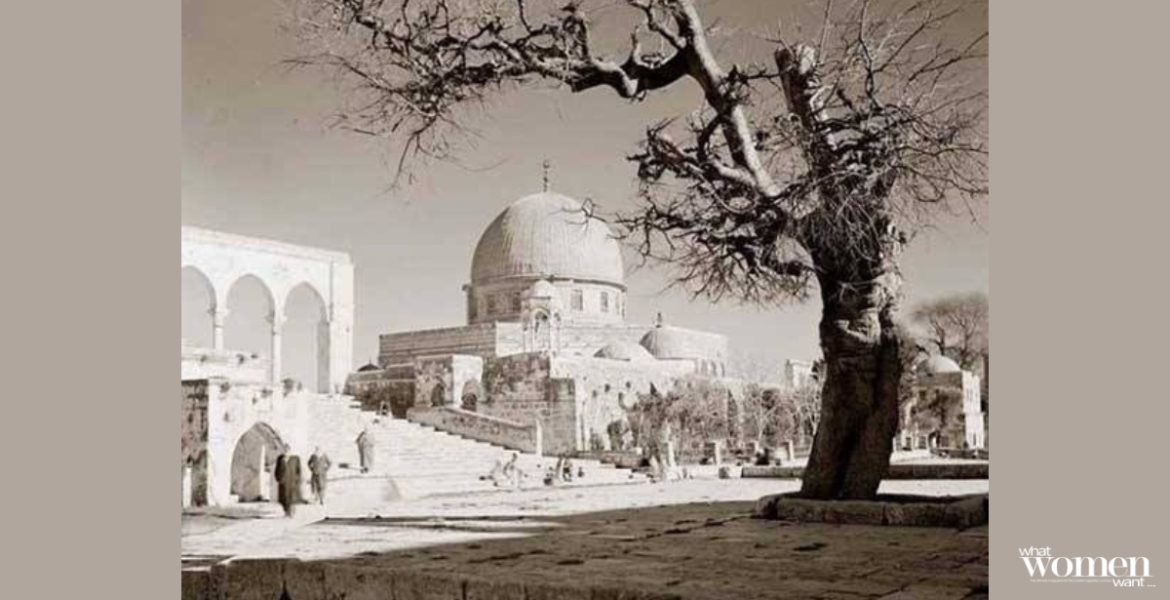Names represent immense power. They shape personal identity and serve as a reflection of the collective heritage, culture, and values. For Palestinians, choosing a name for their children is a task that carries a deep significance. To truly grasp the power of Palestinian names, it is vital to understand the historical and cultural context. The names are influenced by their rich history influenced by Arab, Islamic, Christian, and ancient civilizations influences. In addition, family and ancestral connections play a huge role in the naming process.
Palestinian Parents started naming their children after Palestinian towns, which is a powerful act of resistance. In doing so, they are securing their heritage against the occupation’s endless attempts to erase their history and culture. Also, they challenge the Israeli historical narrative by documenting the actual names of the Palestinian towns before the 1948 Nakba. The fact that these Palestinian children bearing these Palestinian city names may never step foot in the cities they are named after due to Israel’s blockade.
Here are common Palestinian Names that are associated with the original names of Palestinian cities:
Bisan

Bisan, in the Turkish language, means unparalleled, or like no other. It is also the name of one of Palestine’s oldest cities. Bisan dates back to the Canaanite city, which historically can be traced to more than 6000 years. It is located east of the Jordan River, between Tabariah, Al-Nassera, Nabless, and Jenin. The city was noted to have great weather, striving economics, and soaring reputation because of its location on the trading road between Egypt and the Levantine Countries. The town fell victim to the evil forces to the many stages of occupation that Palestine faced since the dawn of history. The Zionist occupation took over the city of Bisan on the 12th of May 1948. The Zionist armed forcibly removed its native people and threw them in Syria and Lebanon. Israel tore down the town and built illegal settlements on the land of Bisan.
Jaffa
 Jaffa means beautiful or beautiful view and it is one of the oldest and most important Palestinian. In fact, it was the cultural capital of Palestine before Nakba 1948. It hosted the daily Palestinian newspaper and tens of magazine and the most important publishing houses in the region. Also, It was home to the most beautiful cinemas, theaters, and cultural clubs in Palestine. In addition to its cultural significance, it had huge economical benefits. Jaffa shined with its commercial, banking, fishing, and agriculture industries. It was known for its world famous citrus and bananas. Jaffa had factories that manufactured cigarette, cement, tiles, handmade carpets, and leather products. Israeli took over and still maintains all of Jaffa’s industries, and claimed it as property of the “Jewish State”.
Jaffa means beautiful or beautiful view and it is one of the oldest and most important Palestinian. In fact, it was the cultural capital of Palestine before Nakba 1948. It hosted the daily Palestinian newspaper and tens of magazine and the most important publishing houses in the region. Also, It was home to the most beautiful cinemas, theaters, and cultural clubs in Palestine. In addition to its cultural significance, it had huge economical benefits. Jaffa shined with its commercial, banking, fishing, and agriculture industries. It was known for its world famous citrus and bananas. Jaffa had factories that manufactured cigarette, cement, tiles, handmade carpets, and leather products. Israeli took over and still maintains all of Jaffa’s industries, and claimed it as property of the “Jewish State”.
Plestia

Plestia is a beautiful name is derived from one of the earliest tribes that lived on the lands of Palestine, Philistia. Later, it was translated into the Arabic language, as Palestine. The Canaanite natives were one of the first tribes to make it their home. Due to its historical and geographical importance, it later became home to many different tribes. Because of its diverse population, it carried different names throughout history.
Jenin

Jenin means the spring of gardens and is the name of one the oldest towns in Palestine. It is 4000-year-old city. The picturesque town is filled with olives and almond groves. It also played a huge role in trading as it was the crossroads between the sea and the northern and eastern regions of the country. This Palestinian town is nicknamed as the “city of peace”. It now hosts one of the biggest camps, Jenin camp. It borders the Jenin municipality in the West Bank, and it captures the true suffering of the Palestinian people. The camp was also severely affected by the second intifada. In 2002, the Israeli military occupied the camp after ten days of intensive fighting, destroying more than 400 houses, severely damaging hundreds more, and displacing more than a quarter of the camp’s population.

